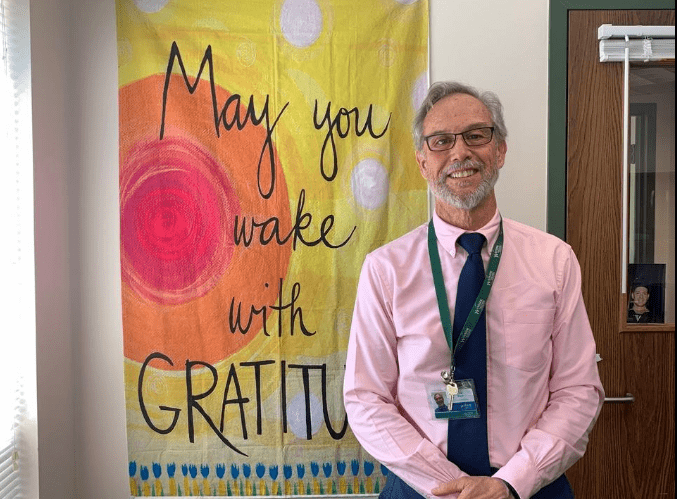MetroWest Daily News – Wayside offers therapeutic, education to teens

Our CEO, Eric Masi, was recently featured in the MetroWest Daily News. Read the full story below.
By Zane Razzaq
FRAMINGHAM – For 10 years, Wayside Youth and Family Support Network’s Frederick Abbott Way campus has provided teens who struggle in school or come from broken homes with therapeutic and educational services.
At the 14-acre campus, students who struggle to function in a public school setting can attend classes in a structured, therapeutic classroom with a full education program that includes core subject instruction and counseling services. For other teens, a day center allows them to still live at home while receiving intensive clinical services during the day.
In an interview, Eric Masi, president and CEO of Wayside, discussed how the campus has changed over the last 10 years, the challenges the campus sees, and the campus’s future plans.
What has changed at the campus in the 10 years Wayside has been here?
“I think the campus runs a lot more as a large team. There are individual townhouses, and when we first got here, we operated as six individual houses and two separate day programs – a school and day treatment program. So everyone operated in their own silos.
Now there’s much more teamwork. Initially, there might have been a thought that, ‘this is the service that a child needs and this is the house for them to live in.’ But now, we have a better sense, where we can see they may also need to go to day treatment, or they’re not doing well in school, maybe they should go to our school. Or they’re doing really well in our school, and now it may be time for them to go to the community.
It’s a much more holistic approach with how we work with the kids and families that are here, as opposed to just being a bunch of different programs that happen to be co-located at the same site.
The community’s perception about mental health has also changed. There’s less stigma, as families are a little more open that they may be having challenges and their child may be having challenges. There’s a long way to go in that, in terms of people accepting and supporting kids and families with mental health needs. But it’s much better than it was and it makes out work much easier than it was. There’s less denial, at least for some.
It’s been nice change to see in the time we’ve been here. The community, they get it.
What are some of the challenges for the campus?
A big challenge is staffing. Frankly, there is a good economy and we’re all competing for the same workforce. Our staff turnover here is 30 percent, which is not bad at all for human services. But it’s a challenge to recruit and retain staff, considering pay and the challenge of coming to work with kids who are going through very tough challenges. It’s also very rewarding, which is why we’ve had a lot of staff stay.
What’s next for the campus?
The local human services agency will expand its residential program in the future. Wayside plans to demolish an existing building at 3 Lockland Ave. and replace it with a new dormitory and group home for children, adding nine beds at the facility and increasing the capacity at its 14-acre campus.
The new expansion will put a focus on employment and continuing education.
“We turn away a lot of kids. There’s a greater need than we can meet,” said Masi. “This will free up more beds here and let us take some kids off the wait list. It provides another extension of the campus, for kids who are doing well but don’t really have a next place to go … it’s a step and a leap, but they won’t need to go to a whole new environment.”

